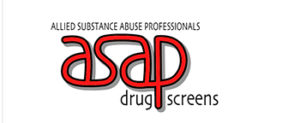
GCG Risk Management, Inc. is now in partnership with
ASAP Drug Screens – Allied Substance Abuse Professionals
Nationwide Third Party Administrator for DOT testing
Allied Substance Abuse Professionals is a Third Party Administrator of drug testing programs and safety compliance consultants. ASAP specializes in developing and maintaining Federally controlled substance programs for the Department of Transportation. The divisions include: FMCSA-DOT, FAA, FTA, US Coast Guard, Pipeline and Underground Mines.
ASAP provides DOT drug and alcohol testing conducted by SAMHSA/NIDA certified laboratories for the purpose of Pre employment, Random, Post Accident, Reasonable Suspicion, Return to Duty and Follow Up testing.
ASAP Safety Consulting division specializes in running and managing safety departments, consulting to existing safety departments and provides all necessary trainings. Founded in 2001, ASAP is comprised of a team of highly skilled professionals including a Medical Review Officer, Occupational Physicians and Safety Professionals.
ASAP is a member of DATIA (Drug & Alcohol Testing Industry Assoc), Michigan Trucking Assoc, American Trucking Assoc, as well as the Transportation Club of Detroit. With 24- hour availability, ASAP will ensure your drug free workplace remains compliant. ASAP will meet, and then exceed all your expectations.
Services
Federal / Regulated drug testing:
DOT Pre-employment – results reported electronically the next day
Random -selections and testing
Random Consortium:
DOT approved computer program for random selections
Post accident – truck packs provided and 24- hour collection site coordination
SAP Referral Network access to:
Return to Duty
Follow up
In house Medical Review Officer
On-Site collections available
DOT Safety Management Training
Our clients rely on us to train drivers and managers on various topics. The topic, type and location for the training is dictated by our clients. Our goal is to give them in-depth insight, in the format that provides the greatest impact to their organization.
Our training is delivered by an experienced consultant with in-depth knowledge of the topic being presented. Our programs generally consist of Power-Point presentations, videos and handouts. Depending on the need of our clients, we can develop additional materials such as quizzes, test, case examples and customized collateral.
In-Depth Training on DOT Rules & Regulations
Could not knowing about the latest DOT regulations put your company at risk? If you’re unsure about how to interpret DOT regulations, let us give you clear direction and the most up-to-date information. We cover the regulations and answer any questions you have in easy-to-understand plain English, helping you eliminate the guesswork. Our expert consultants provide you with the information you need to make working with DOT regulations a snap.
Supervisor Reasonable Suspicion Training
The DOT Reasonable Suspicion Training requirement specifies that supervisors need to know what to look for and what to do if someone seems unfit for duty. Using the Four Steps of Constructive Confrontation and Documentation developed by the U.S. Navy and in practice nationally over the last fourteen years, supervisors can now act knowing they are protecting everyone. Supervisors will know not only how and when to do reasonable suspicion/cause testing but why they need to do it.
Hazmat Training
Hazardous materials training is required for all “hazmat employees” under the U.S. DOT hazardous materials regulations (49 CFR Part 172, Subpart H). Hazmat training is required within 90 days for new employees. Training must be repeated every three years and periodically as rules change.
Accident Investigation Training
OSHA strongly encourages employers to investigate all incidents in which a worker was hurt, as well as close calls (sometimes called “near misses”), in which a worker might have been hurt if the circumstances had been slightly different.
Investigating a worksite incident— a fatality, injury, illness, or close call— provides employers and workers the opportunity to identify hazards in their operations and shortcomings in their safety and health programs. Most importantly, it enables employers and workers to identify and implement the corrective actions necessary to prevent future incidents.
Incident investigations that focus on identifying and correcting root causes, not on finding fault or blame, also improve workplace morale and increase productivity, by demonstrating an employer’s commitment to a safe and healthful workplace.
Hours of Service
An essential training service for safety compliance managers, log audit personnel, dispatchers, operations personnel, drivers and others who need to manage, enforce, or comply with hours of service and logging regulations.
You will receive the most up-to-date information available on the rules, as well as any new interpretations or guidance provided by the DOT.
Canadian Customs Training
